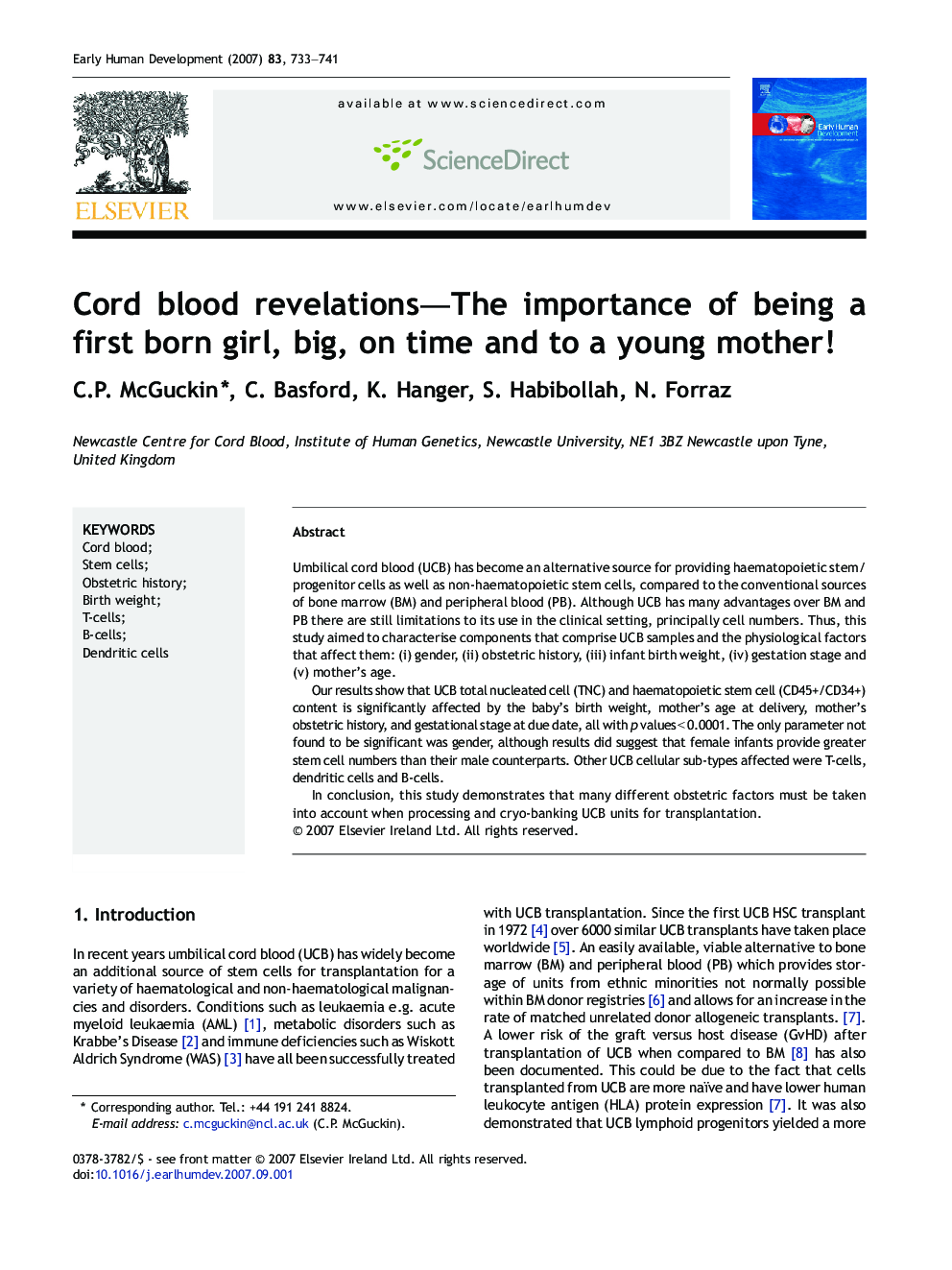| Article ID | Journal | Published Year | Pages | File Type |
|---|---|---|---|---|
| 3918290 | Early Human Development | 2007 | 9 Pages |
Umbilical cord blood (UCB) has become an alternative source for providing haematopoietic stem/progenitor cells as well as non-haematopoietic stem cells, compared to the conventional sources of bone marrow (BM) and peripheral blood (PB). Although UCB has many advantages over BM and PB there are still limitations to its use in the clinical setting, principally cell numbers. Thus, this study aimed to characterise components that comprise UCB samples and the physiological factors that affect them: (i) gender, (ii) obstetric history, (iii) infant birth weight, (iv) gestation stage and (v) mother's age.Our results show that UCB total nucleated cell (TNC) and haematopoietic stem cell (CD45+/CD34+) content is significantly affected by the baby's birth weight, mother's age at delivery, mother's obstetric history, and gestational stage at due date, all with p values < 0.0001. The only parameter not found to be significant was gender, although results did suggest that female infants provide greater stem cell numbers than their male counterparts. Other UCB cellular sub-types affected were T-cells, dendritic cells and B-cells.In conclusion, this study demonstrates that many different obstetric factors must be taken into account when processing and cryo-banking UCB units for transplantation.
